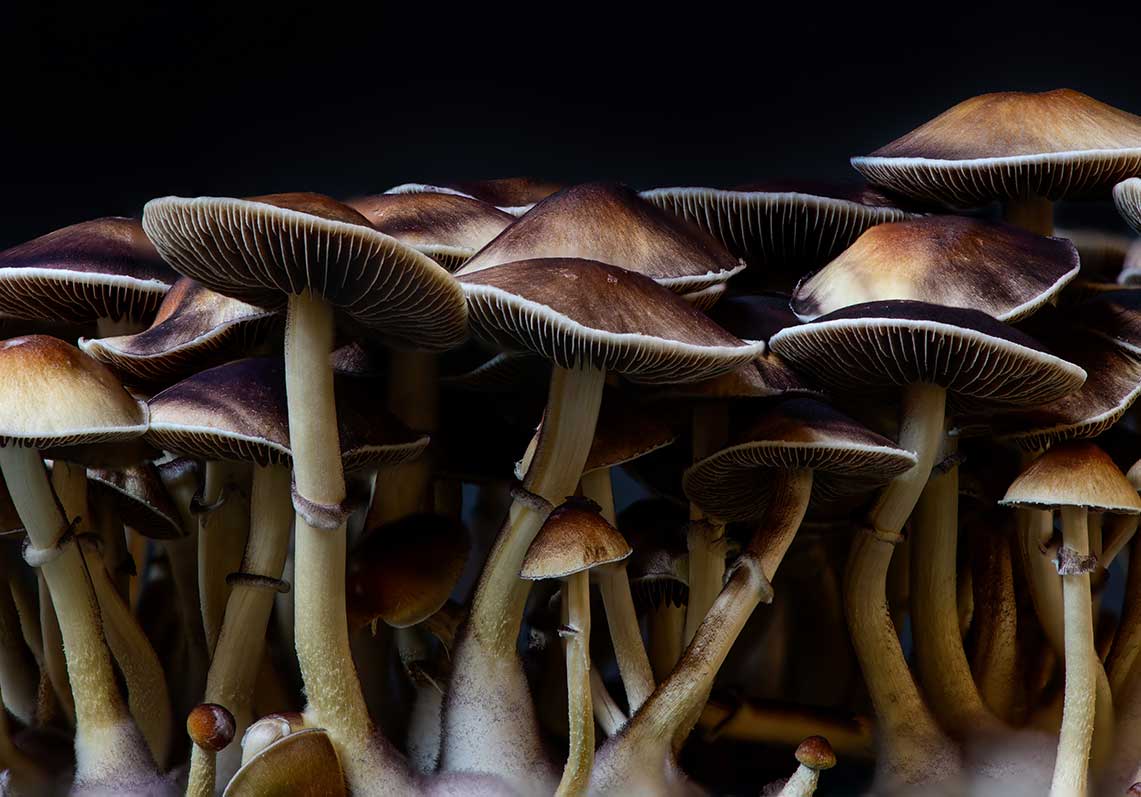In 2021, Johns Hopkins Medicine received a grant of nearly $4 million from the National Institutes of Health (NIH) for psilocybin research. It was the first grant of its kind for over fifty years. A couple of years later, the Canadian government announced a grant of $3 million for three clinical trials into psilocybin-assisted research. (1) (2)
Needless to say, we’re seeing a lot of interest in psilocybin as researchers scramble to unlock its medicinal benefits and governments seek to change their approach, moving from complete prohibition to a situation where magic mushrooms could—and in some cases, already have—become legalized for medicinal use. (3)
It’s no surprise when you consider the wealth of positive psilocybin research linking the substance to everything from treatment-resistant depression to addiction treatment and cluster headaches.
Psilocybin in the Treatment of Cluster Headaches
Cluster headaches are short and intense headaches. There is no cure, but psilocybin has been touted as a possible solution. (4)
A study conducted in 2015 found that indoleamine hallucinogens like psilocybin and LSD can be just as effective as conventional medicines in treating this condition. More notably, they were able to shorten or abort a cluster headache attack better than conventional medications and were more effective at sending a chronic attack into remission. (5)
These results came from a self-reported survey, but other studies have hinted at similar conclusions. A randomized, double-blind, placebo-controlled trial conducted in 2022 found that psilocybin could improve cluster headache symptoms, while the American Migraine Foundation noted that it has “has potential as a treatment option” but that “further large-scale studies” are needed. (6)
Psilocybin for Depression and Anxiety
Some of the most promising trials on psilocybin relate to its effect on depression.
A 2020 study looked at the effects of psilocybin-assisted therapy on participants with major depressive disorder (MDD) and found that it improved both depression severity and secondary outcomes within a month of the treatment. (7)
The most intriguing studies concerned treatment-resistant depression, which are cases of depression where conventional treatments have proven ineffective. A 2017 study found that psilocybin produced “rapid and sustained antidepressant effects” in such individuals, with all study participants showing a decrease in depression symptoms within a week of the study, while all but one of them had depression scores lower than the study’s baseline at week 5. (8)
Psilocybin’s Impact on OCD
It seems that many of the mechanisms that make psilocybin effective in helping those with treatment-resistant depression could also apply to OCD. An open study tested the substance on nine patients with OCD. Researchers gave the participants varying doses of the psychedelic and noted that all of them experienced a reduction in OCD symptoms that lasted for at least 24 hours. (9)
Psilocybin and Addiction Therapy
A review conducted in 2023 looked at the therapeutic effects of psilocybin in treating alcohol and tobacco addiction. Psilocybin doses of between 6 and 40 mg were administered, and the results were very positive. (10)
In one of the four studies, nearly a third of the participants became “completely abstinent from alcohol” during a mean follow-up period of six years. Average heavy drinking days were also greatly reduced, and after a year, 67% of the smokers had given up.
How Does Psilocybin Impact the Brain?
Although we don’t know everything about how psilocybin affects brain chemistry, there have been some interesting discoveries.
After someone consumes psilocybin, a network of the brain known as the default mode network (DMN) undergoes some significant changes. Connected to the anterior hippocampus, this network of the brain is believed to play a role in our perception of time and space, as well as the inner self. (11)
Overactivity in this network has been linked to symptoms of depression and various other mood disorders, and by reducing DMN activity, psilocybin may be able to create more of a balance and reduce those symptoms. This could be why it seems to be so effective in the treatment of depressive disorders. (12)
Psilocybin has a massive initial effect on the brain, causing profound changes to functional networks. It effectively desynchronizes everything, and when the acute effects fade, the brain networks stitch themselves back together. It’s a reset of sorts, and it could make the brain more flexible and adaptable, thus helping it to better prepare for the strong emotions, cravings, and compulsions associated with issues such as depression, OCD, and dependency. (13)
Ongoing Clinical Trials on Psilocybin
In addition to trials looking at how psilocybin could help those with psychiatric disorders, it is also being studied for its effects on chronic pain, specifically in terminal cancer patients. These include trials using psilocybin to assist with cancer-related anxiety and existential distress. (14)
The Johns Hopkins Center for Psychedelic and Consciousness Research is also investing heavily in psychedelic research. It was the recipient of the historic 2021 grant mentioned at the outset of this article, and it was also behind key research into major depressive disorder, mentioned elsewhere in this article. (15)
FDA Breakthrough Therapy Designation
Psilocybin has been decriminalized and legalized for medicinal use in Oregon and Colorado, and various other states seem to be handing over the reins of prohibition. However, it is still classified as a Schedule I substance, so it is not yet legal across the country. (16) (17) (18)
However, in 2024, the FDA granted breakthrough therapy status to a psychedelic molecule known as CYB003, which is an analog of psilocybin. The status means that the compound shows promise in the treatment of one or more disorders (major depressive disorder, in this case) where it can meet a need that other medicines can’t. (19)
It streamlines the review process, and while work is still ongoing in 2025, it could lead to promising new treatments for major depressive disorder while helping to change the reputation and status of psilocybin and psychedelics on the whole. (20)





